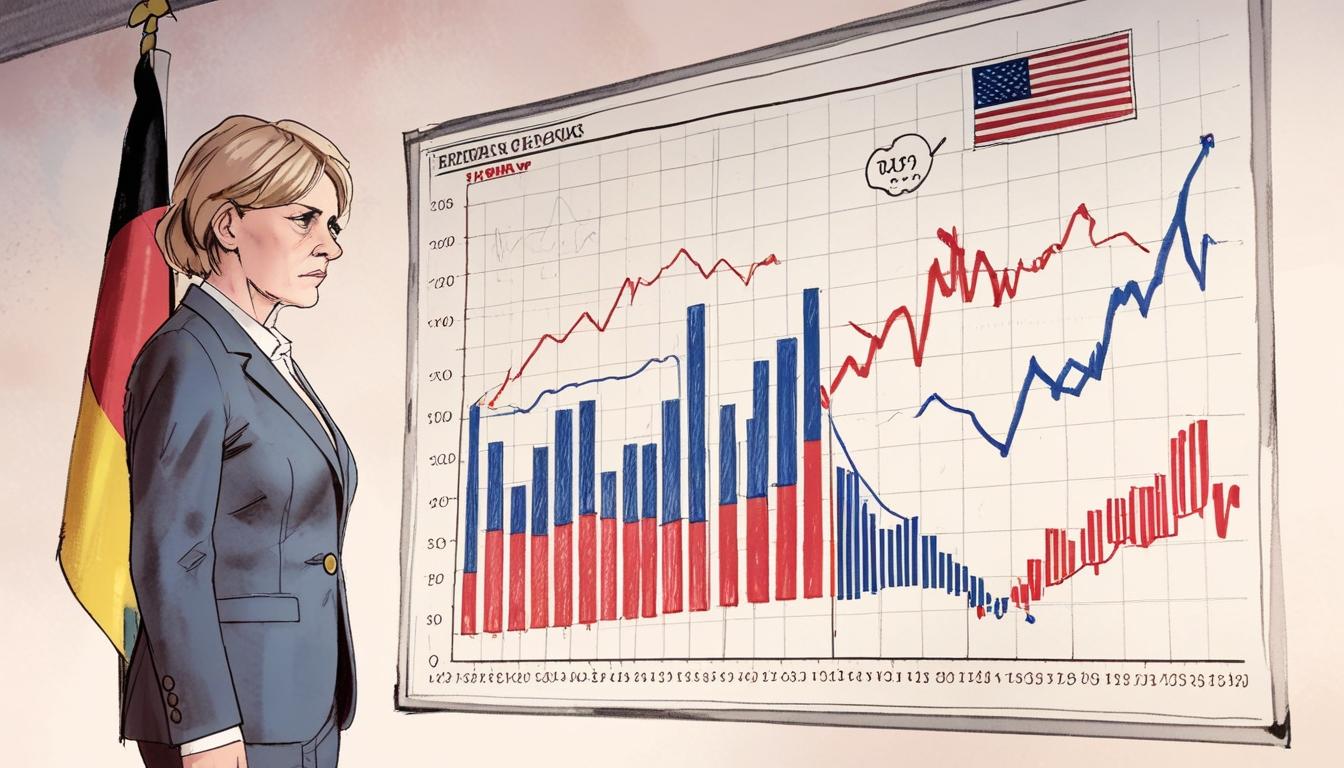Germany, Europe’s largest economy, has revised its growth forecast for 2025 down to zero, citing the unpredictable US tariff policies under former President Donald Trump as the main cause. The International Monetary Fund supports this outlook, highlighting continued challenges from transatlantic trade disputes.
Germany, Europe’s largest economy, has revised its economic growth forecast for this year down to zero, primarily attributing the slowdown to the trade policies enacted by former US President Donald Trump. This marks a sharp decline from earlier projections, which had placed growth at 0.3%, having previously estimated 1.1% growth for 2025.
Robert Habeck, Germany’s outgoing Economy Minister, explicitly pointed to the "unpredictable" nature of the US tariff policies as the chief factor behind the downgrade. Speaking about the revision, Mr Habeck said, "There is above all one reason for this, namely Donald Trump's trade policy and the effects of the trade policy on Germany.” He further commented on the broader economic challenges faced by Germany, noting, “The German economy is once again facing major challenges due to the unpredictable trade policy of the United States.” Emphasising the importance of resolving these issues, he added, “It is therefore in our strong interest that the EU and the US find a solution to the tariff dispute.”
The tariff dispute stems from the US government's imposition of a 20% reciprocal tariff on goods from the European Union earlier in the year. Though a 90-day pause on this tariff was later announced, the baseline 10% tariff remains in place as negotiations continue between Washington and the EU.
The International Monetary Fund (IMF) recently published a report corroborating Germany’s revised outlook, predicting no economic growth for Germany in 2025 and a 0.9% increase in 2026. This marks a decrease of 0.3 percentage points for 2025 and 0.2 percentage points for 2026 compared to earlier forecasts.
Germany’s reliance on exports makes it particularly susceptible to international trade tensions, with these tariffs having a direct impact on its economic performance. The situation underscores the ongoing uncertainties in global trade relations and their effects on major economies.
Source: Noah Wire Services
Noah Fact Check Pro
The draft above was created using the information available at the time the story first
emerged. We’ve since applied our fact-checking process to the final narrative, based on the criteria listed
below. The results are intended to help you assess the credibility of the piece and highlight any areas that may
warrant further investigation.
Freshness check
Score:
8
Notes:
The narrative contains specific and recent information about Germany's economic forecast and US tariffs, indicating it is not outdated. However, it references events and policies from earlier in the year without specifying exact dates.
Quotes check
Score:
6
Notes:
The quotes from Robert Habeck are attributed to him explicitly, but without specific dates or links to original sources. This makes it difficult to verify if they have been previously reported in the context provided.
Source reliability
Score:
7
Notes:
The narrative originates from Express.co.uk, which is a well-known publication but not necessarily considered as authoritative as outlets like BBC or Financial Times. It includes references to credible organizations like the IMF.
Plausability check
Score:
8
Notes:
The claims about the economic impact of US tariffs on Germany are plausible given the reliance on exports and the ongoing trade tensions. The International Monetary Fund's corroborating report adds credibility.
Overall assessment
Verdict (FAIL, OPEN, PASS): OPEN
Confidence (LOW, MEDIUM, HIGH): MEDIUM
Summary:
The narrative appears to be relatively fresh with plausible claims, though the lack of exact dates for quotes and sources slightly reduces confidence. The reliance on Express.co.uk, while not ideal, is balanced by references to the IMF.
